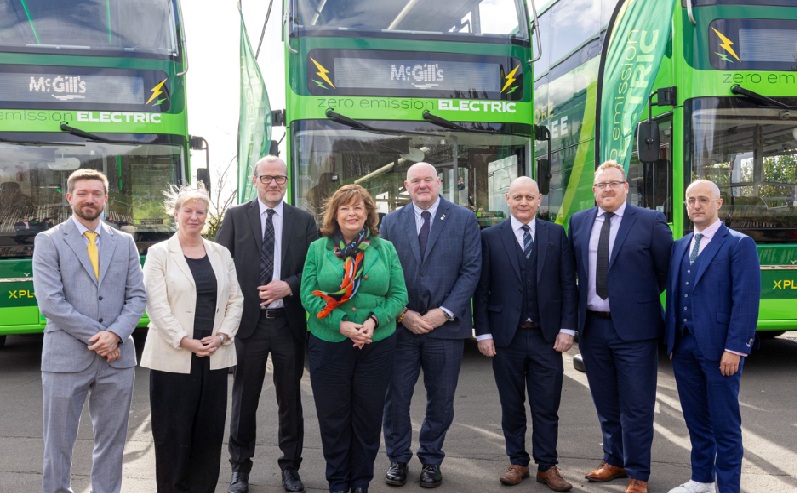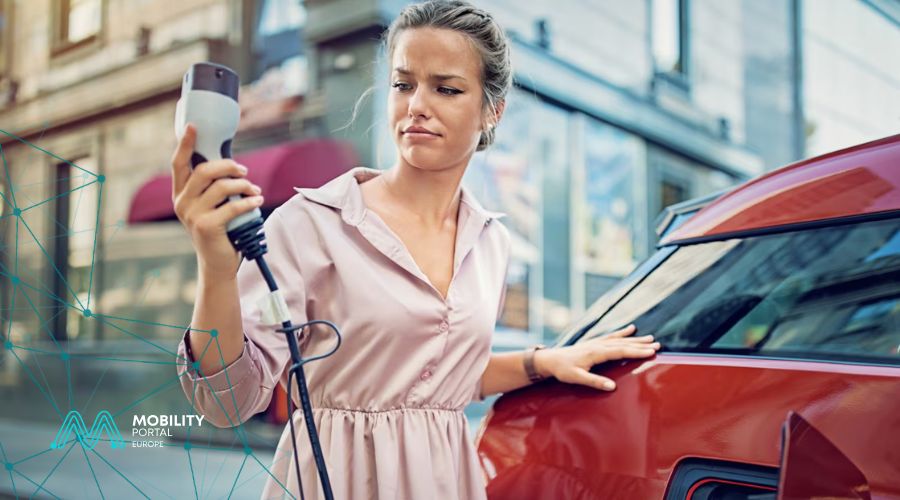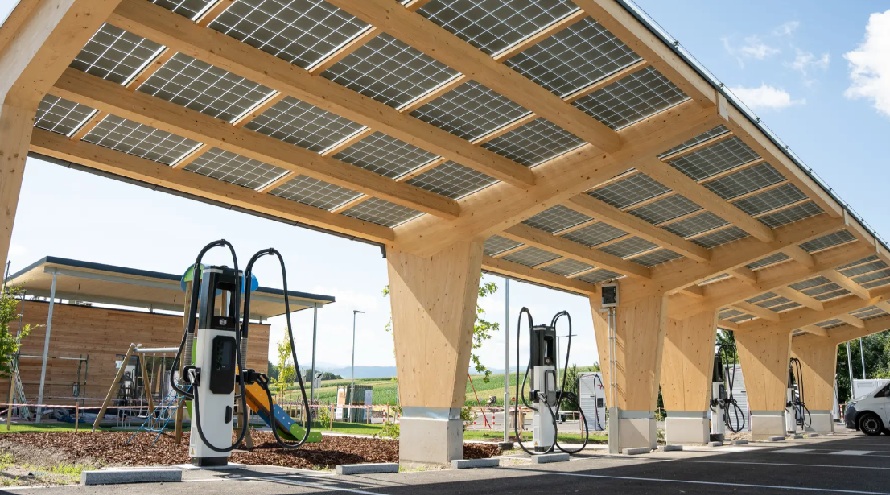A new fleet of 12 zero-emission electric double-decker buses has been unveiled by Xplore Dundee, marking a significant leap forward in sustainable public transport for the City of Discovery.
The 8.4 million pounds investment by McGill’s Group, owned by Sandy and James Easdale, highlights their ongoing commitment to innovation and decarbonisation within the public transport sector.
The fleet was launched at an event attended by Scottish Government Cabinet Secretary for Transport, Fiona Hyslop MSP, and Dundee City Council Leader, Mark Flynn.
The new Yutong U11DD vehicles, each capable of carrying up to 84 passengers, set a new standard in passenger comfort, featuring air conditioning, USB charging sockets, and a whisper-quiet ride.
Equipped with 422kWh capacity batteries, the fleet is supported by significant upgrades to Xplore Dundee’s East Dock Street depot to facilitate efficient charging and maintenance.
McGill’s has previously invested 7.6 million pounds in electric vehicles and infrastructure in Dundee.
This latest purchase brings the total number of electric buses in the McGill’s Group fleet to 121, with a further 30 due to be delivered this summer, reinforcing its position as one of the leading operators of zero-emission public transport in the United Kingdom (UK).
The investment has been supported by around 2.7 million pounds from the Scottish Government through the Scottish Zero Emission Bus Challenge Fund (ScotZEB) – designed to accelerate the transition to a zero-emission bus fleet, further reinforcing Scotland’s commitment to achieving net-zero emissions.
Investment by McGill’s in electric vehicle technology since 2021 now stands at 68 million pounds, with 25 million pounds invested by ScotZEB.
Charging infrastructure at McGill’s Group is provided by Zenobē.
The Zenobē-led ScotZEB 2 consortium is deploying over 250 zero-emission vehicles and creating a network of shared charging infrastructure across Scotland.
Zenobē’s financing approach provides efficient and effective delivery as demonstrated by today’s launch of 12 fully electric buses less than one year on from the launch of the ScotZEB 2 programme.
Fiona Hyslop said: “This brings our total investment to McGill’s Group, through three previous rounds of subsidy for zero emission buses and charging infrastructure, to over 25 million pounds. This has encouraged early investment and has resulted in 121 zero-emission buses being introduced for their customers since 2020.”
She added: “This could not be achieved without the leadership and ambition we’ve seen from Xplore Dundee and McGill’s in our shared ambition to protect the climate and encourage more sustainable bus travel.”
Tony Williamson, Chief Executive of McGill’s Group, stated: “With this latest rollout, McGill’s now operates one of the largest electric bus fleets in the UK. We are proud to lead the way in the transition to greener public transport and to provide a cleaner, more comfortable travel experience for our passengers.”
“Owners Sandy and James Easdale have made a tremendous investment in McGill’s Group, and this latest addition to our electric fleet is a testament to their commitment to sustainable transport,” he added.
Ian Downie, Head of Yutong UK, commented: “We have worked with McGill’s for a number of years and are absolutely delighted that they have ordered the first Yutong double decks to operate in Scotland.“
“These state-of-the-art vehicles are fitted with customer-centric features such as passenger air conditioning and enhanced passenger information systems, as well as USB charge points. McGill’s have been a pleasure to work with, and we cannot wait to see these vehicles in operation, enhancing the passenger experience and decarbonising the transport system in Dundee.”
READ MORE
-
UK enters a “decisive” phase: can the charging network ease range anxiety enough?
The government recently announced that it has reached 82,000 public charging points. This is a positive sign for those who own or are considering purchasing an EV. However, beyond focusing on quantity, the UK must also prioritize quality. Which areas have the least charger coverage?
-
From Amsterdam to Pamplona: Sungrow targets eMobility leadership with European I+D and local presence
With an innovation centre in the Netherlands and an operational hub in Spain, the global firm combines technology tailored to the European market with local stock, after-sales support, and integrated solutions. Its goal: to lead the EV charging infrastructure market with efficiency and proximity.
-
With 38 charging bays, one of Austria’s largest EV parks begins operation
Once fully developed, the charging park will offer a total of 50 charging bays. The area will also offer a wide range of amenities, including playgrounds, toilet facilities, and a bistro.










